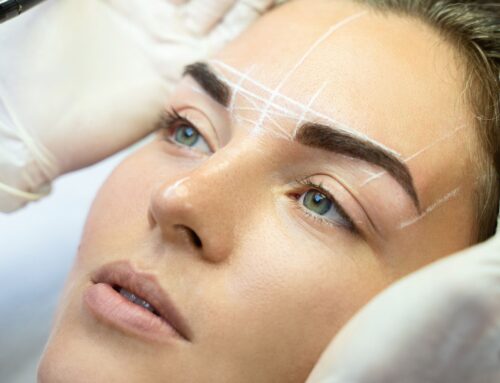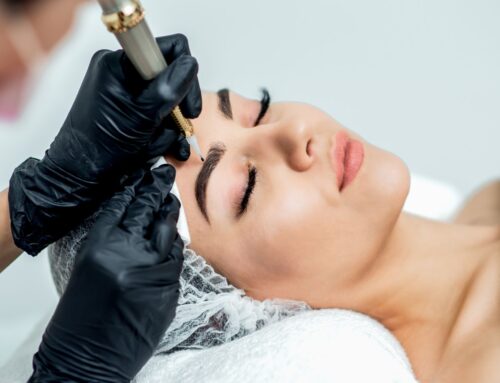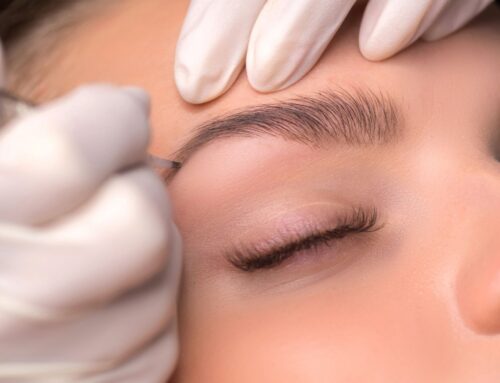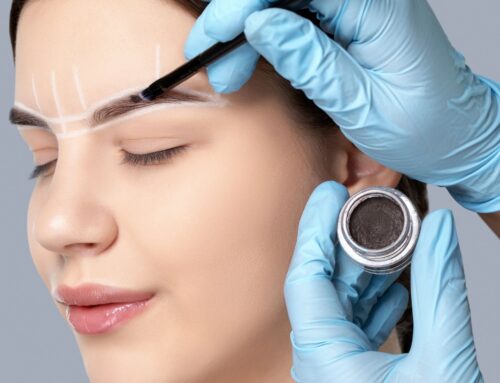
Who-Can-and-Cant-Get-Microblading | Browbeat Studio Microblading Training
Get Microblading
Microblading or feather-stroke is a form of semi-permanent makeup or micropigmentation that is performed in the brow area. A manual hand tool with a row of tiny pins is used to create hair like strokes by depositing pigment underneath the top layers of skin with very precise placement. When done properly, the effect should be full natural looking brows. We always tell our microblading clients that if we have done our job properly, they shouldn’t be able to tell where their natural hairs end and the microbladed hair strokes begin. With big celebrities like Gwyneth Paltrow, Mila Kunis and Adele undergoing this simple cosmetic procedure, the procedure is quickly gaining popularity. So who exactly is and isn’t a candidate for the procedure? Can anyone undergo a microblading treatment or are there certain rules and restrictions? We’ll tell you everything you need to know in this blog post!
Some factors that could make you ineligible for microblading, also known as contraindications, as we call them in the industry, are listed below.
-
You’re under 18
Microblading as well as all other types of micropigmentation fall under the laws of tattooing. With this being the case, most states will require you to be at least 18 with valid ID. While some states may allow for tattooing at a slightly younger age with parent permission, liability insurance typically will not cover this and therefore 99% of studios won’t perform this treatment on minors regardless of the circumstances or laws. Our advice is to just wait it out. Eighteen will come soon enough and you don’t want to risk being botched by a less than a reputable studio, and any studio worth its salt won’t agree to treat you until after your birthday. Just hold tight! It will be worth it, in the end, to have it done right!
-
You’re Pregnant or Breastfeeding
If you are pregnant, microblading cannot be performed. There are several reasons for this. The first is increased risk of infection. During pregnancy our bodies are highly sensitive to infection, for the sake of mother and baby, this should be minimized wherever possible, so that means holding off on your microblading procedure. Secondly, Pregnancy Hormonal changes cause an increase in vascularity, so what does that mean? It means you are likely to bleed more than you would otherwise. This affects the quality of the work, in that, excessive amounts of blood dilute pigment and therefore decrease retention. It is possible your microblading ‘won’t take’ and you would just need to go through this somewhat costly procedure again so you may find it more desirable to just wait until after your pregnancy. Lastly, the numbing creams used in the procedure can sometimes contain epinephrine, which has been associated with fetal tachycardia and cardiac anomalies. However, epinephrine has not been studied in pregnant women, only on pregnant animals. So it may be fine but we just don’t know. Also, many microblading inks contain natural ingredients such as nickel or iron oxide. These chemicals are perfectly safe for adults but have not been studied for fetal interactions. When it comes to the health of your unborn child, isn’t it better to be safe than sorry?
When it comes to breastfeeding, it’s a different story. Since you are no longer carrying your child in utero, there is no worry of the fetal effects. Instead, there are only two causes for concern, which is not really cause for concern at all. Number one, there is a possibility of passing infections from mother to child via breastmilk. However, you are more likely to get an infection from poor aftercare (not washing as instructed) than from a reputable shop. Moral of the story, don’t skip washes! And you should be fine. The second concern is, once again, the epinephrine in the topical numbing creams, it is possible that this could, at a small level pass into the breast milk produced by the mother, however, there is no evidence one way or the other. Because of this, you may opt to skip the topical cream! This will in no way affect the quality of your results. There is no evidence that microblading pigment passes into breast milk.
-
You Have a Sunburn, Rash, Severe Acne, Keloid Scars or Active Skin Cancer in Your Brow Area
If you are currently suffering from skin abnormalities in your brow area you must wait for this to heal fully before undergoing a microblading procedure. If you have a chronic or ongoing issue without an end in sight, it may be advisable to work with a dermatologist to get your symptoms controlled. Your dermatologist will also be able to let you know when your skin is considered healthy enough for the procedure. Additionally, if you are prone to keloid scarring this might not be the right treatment for you.
-
You’ve had previous allergic reactions to makeup or tattoo inks.
This is a good indicator that you may have a reaction to the products and tools used in the process of microblading. If you have a history of these types of reactions, you may want to ask your technician to do what is called a patch test. This is where your technician places only a small amount of pigment in one inconspicuous area and then allows 24 hours for observation. If healing proceeds as normal, you are good to go ahead with the treatment. If you notice any sort of reaction, notify your microblading technician immediately and see a doctor as soon as possible.
-
You have easily triggered post-inflammatory hyperpigmentation, transmittable disease such as HIV or Hepatitis; blood clotting disorders, hemophilia or healing disorders.
All of these conditions affect the way that your body heals making the microblading procedure at worst dangerous (as in cases of hemophilia or clotting disorders) and at best negatively affect the look of your microblading (as with hyperpigmentation). A separate concern is, of course, the spread of communicable diseases (such as HIV or Hep C). For this reason, microblading is not recommended for persons with any of these or related conditions.
-
You have diabetes or anemia.
The concern here is that the healing could potentially take longer and this could potentially affect the quality of the healed work. Our recommendation here would be to keep these conditions well controlled. Over the counter iron supplements can be very effective for the purpose of managing anemia and blood sugar and/or blood pressure medications prescribed by a doctor can help keep your diabetes well controlled. Consult with your physician to find out which treatment course is most appropriate for you and if you already have an established treatment protocol, do not discontinue use, unless instructed to do so by a doctor. Your doctor will also be able to tell you when your iron or blood sugar levels are in an appropriate range to undergo microblading.
-
You’re undergoing chemotherapy or had an organ transplant.
If you are undergoing chemotherapy, your immune system is compromised. This creates a higher than normal chance of infection which in an immunocompromised state can have devastating consequences. That being said, microblading can be a great way to address brow loss due to chemotherapy. You should simply wait 6 months after completing your last dose of chemotherapy to allow your immune system to readjust to normal healthy function. It is also a great idea to double check with your doctor and make sure that he or she feels you are now well enough to undergo the procedure. Organ Transplants shares these concerns as well. Your immune system is compromised and you are at a higher than usual risk for infections. For this reason, organ transplant recipients are not good candidates for the procedure.
-
Another health concern is epilepsy for somewhat obvious reasons.
The risk here is that you may experience seizure activity during the blading, which could cause uncontrolled movement of the blade against the skin. Long story short, it’s just not a good idea.
-
You are taking thyroid medication, blood thinners, heart or stroke medications, Accutane or steroids.
Check with your doctor to ensure you are able to safely undergo this procedure. Your doctor may instruct you to temporarily discontinue your medication before getting your microblading treatment done and to resume post healing. Do not discontinue or wean off your medication unless explicitly instructed to do so by your physician.
-
You have recently gotten botox, fillers, chemical peels, laser treatments or other cosmetic procedures in the facial area.
Get Microblading
Simply wait 4 weeks before getting microblading done. Easy peasy!
BrowBeat Studio Dallas | Microblading Certification and Training Academy
Dallas Advanced Microblading Experts
500 Exposition Ave
Suite 210
Dallas, Texas 75226
Phone: 214-431-5939





